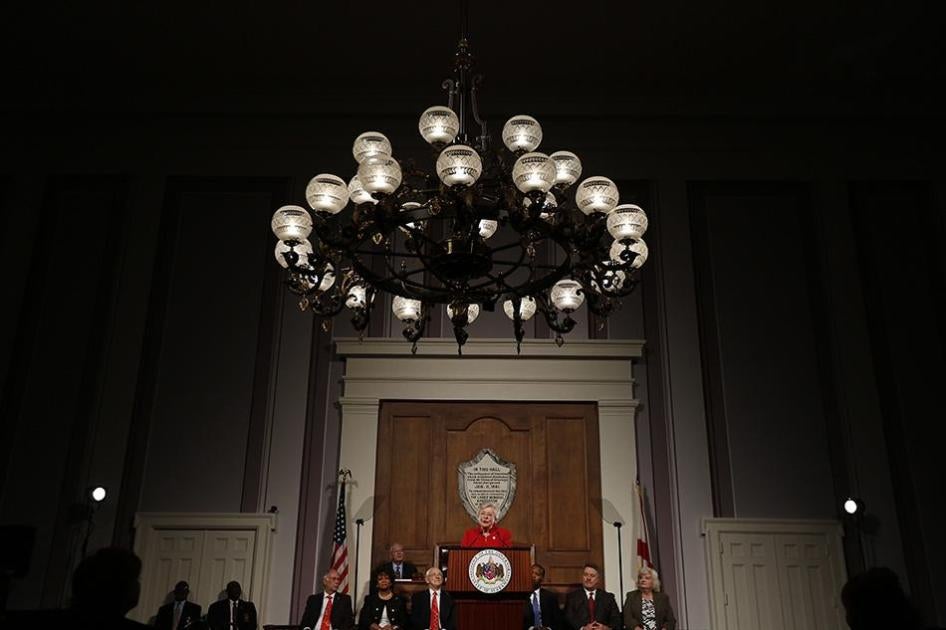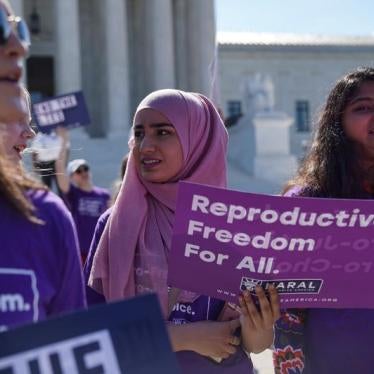Update: On May 15, Alabama governor Kay Ivey signed into law the Alabama Human Life Protection Act
Late last night, the Alabama Senate passed a draconian abortion law criminalizing abortion and attempted abortion. Last minute attempts to carve out an exception for victims of sexual violence were rejected. It is unclear whether Alabama Governor Kay Ivey will sign the bill into law without this exception, but many worry that she ultimately will.
For now, abortion remains legal in Alabama because access to abortion is constitutionally protected under Supreme Court jurisprudence stemming from the landmark case Roe v. Wade. The Alabama bill is in direct conflict with Roe, and its author has been clear from the beginning that her goal is to use its passage as an opportunity to get the Supreme Court to overturn Roe.
Should that happen, women in Alabama could face jail for having – or even trying to have – an abortion. And other states would surely follow Alabama’s lead – some already have similar laws on the books or being considered. It is a dark day for women in Alabama and sends a chilling message to others across the US.
I know what it looks like when abortion is criminalized. My colleagues and I have documented restrictive abortion laws and their impacts in many countries. I’ve spoken to doctors in Ecuador, for example, who feared criminal prosecution and treated patients like potential suspects if they came in with a miscarriage, because they fear the woman may have induced it herself. They don’t want to be implicated in a crime so don’t ask questions important to treating the patient, and they ignore signs that a woman or girl might be a victim of abuse.
In countries with the most extreme abortion laws, doctors will even withhold lifesaving care to pregnant patients, such as chemotherapy, for fear they might break the law. A teenager in the Dominican Republic died precisely because doctors refused to treat her for leukemia while she was pregnant.
Years’ worth of research and reliable data show that abortion restrictions don’t reduce abortions, but instead just drive them underground and often make them unsafe, fueling maternal death and injury. It’s shameful that this bill, and a similar law in neighboring Georgia, was passed within days of the US releasing shocking data on the country’s high rates of preventable maternal mortality.
Alabama is already a state where women’s health outcomes are determined by race, economic class, and geography – this cynical bill doesn’t even pretend to address the real health needs of Alabamian women. Instead, it seeks to control women and girls’ bodies against their will. What a shocking abdication of responsibility by Alabama law makers.










